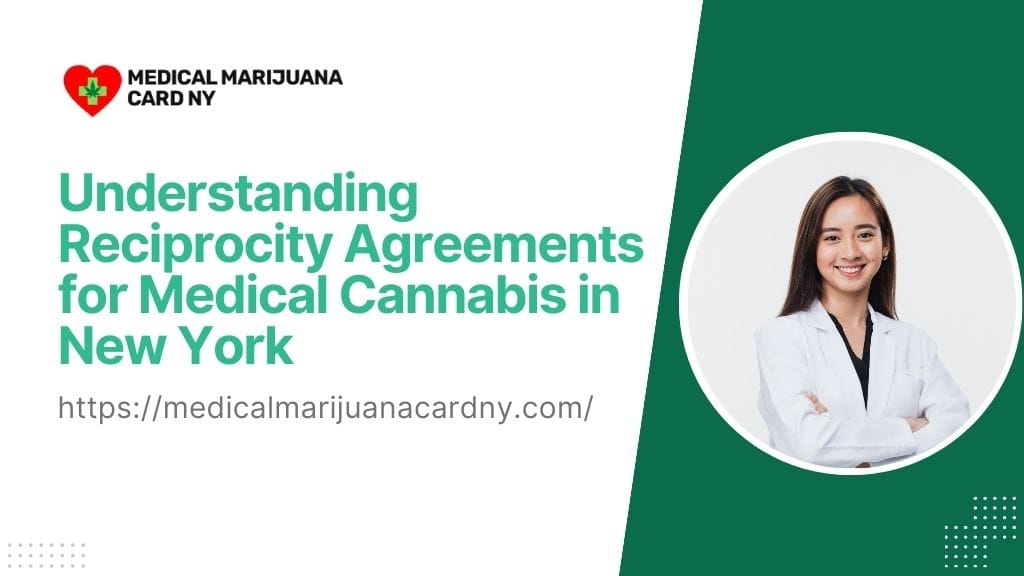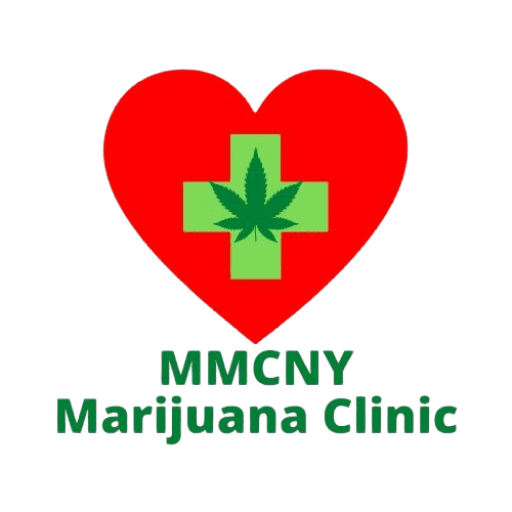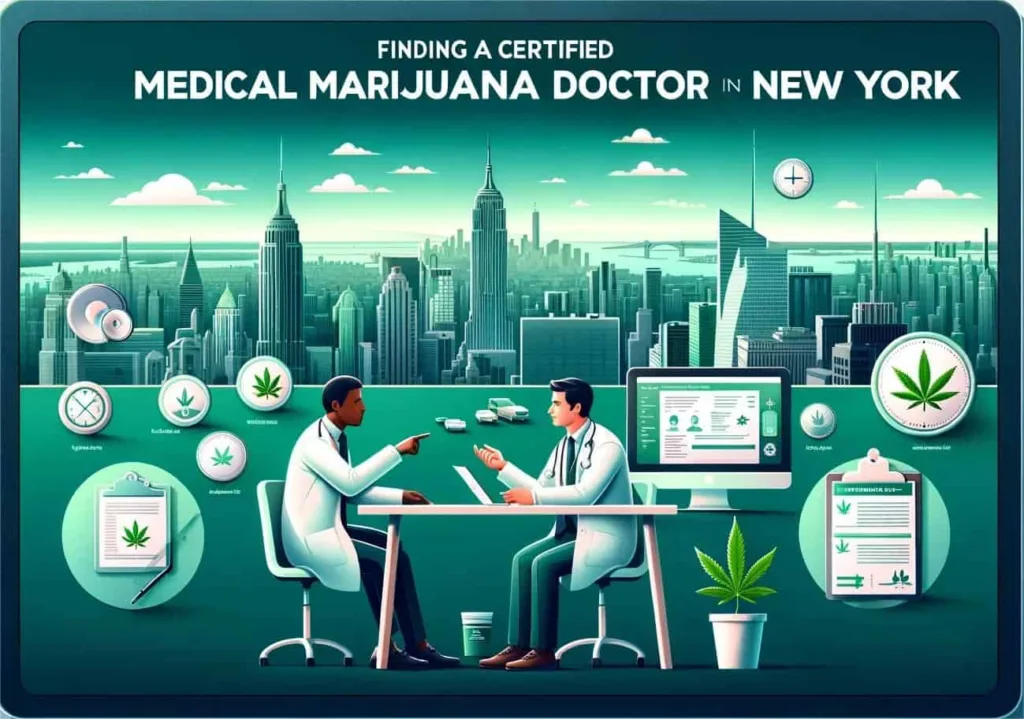Understanding the nuances of Reciprocity Agreements for Medical Cannabis in New York is essential for patients and practitioners alike. These agreements, a significant step in the evolving landscape of medical marijuana laws, have opened new avenues for patients seeking relief through cannabis. In 2023, New York state introduced pivotal changes in its legislation, allowing certified medical cannabis patients from other states access to New York’s dispensaries, given they have sufficient documentation. This move aligns New York with states like Nevada and Michigan, which already have similar policies in place.
The impact of these agreements is substantial. They not only facilitate continuity of care for medical cannabis users traveling to or temporarily residing in New York but also reflect the state’s progressive stance on healthcare and patient rights. This approach has potential economic benefits too, possibly boosting tourism and creating new jobs in the medical cannabis sector.
Notably, New York’s medical cannabis program no longer specifies qualifying conditions, empowering doctors to determine the appropriateness of cannabis use for individual patients. This patient-centric approach, coupled with the elimination of the need for a traditional medical marijuana card, signifies a significant shift towards more accessible and flexible healthcare solutions.
For anyone interested in the intricate details of these changes and how they affect the medical cannabis landscape in New York, our blog offers a comprehensive analysis. We delve into the legislative nuances, real-life implications, and the broader context of medical marijuana in New York, providing insights that are invaluable for patients, healthcare providers, and policymakers. Join us in exploring these pivotal developments in New York’s medical cannabis journey.
Table of Contents
Toggle- What are the Current Reciprocity Agreements for Medical Cannabis in New York?
- How Do Reciprocity Agreements Benefit Out-of-State Medical Cannabis Patients in New York?
- Who is Eligible for Reciprocity in New York’s Medical Cannabis Program?
- How Does New York’s Approach to Medical Cannabis Reciprocity Compare with Other States?
- Why Has New York Adopted Reciprocity Agreements for Medical Cannabis?
- What Legal Changes Accompanied the Introduction of Reciprocity Agreements in New York?
- How Can Medical Cannabis Patients Access Services in New York?
- What Medical Conditions Qualify for Medical Cannabis Use in New York?
- Conclusion
What are the Current Reciprocity Agreements for Medical Cannabis in New York?
New York State has implemented significant reforms in its medical cannabis program, particularly with regard to reciprocity agreements. These agreements, as per the Senate Bill 2023-S1023, allow individuals who are not residents of New York but are authorized for medical cannabis use in their home states, to access medical cannabis in New York.
To avail of this, non-residents must provide legitimate documentation and comply with the legal limits on the possession, delivery, and production of cannabis for medical purposes as set by New York State. The New York State Cannabis Control Board is tasked with implementing these provisions and may establish reciprocity agreements with other states that have medical cannabis programs.
How Do Reciprocity Agreements Benefit Out-of-State Medical Cannabis Patients in New York?
The introduction of reciprocity agreements in New York’s medical cannabis program offers significant benefits to out-of-state medical cannabis patients. Since November 1, 2023, out-of-state residents with valid medical marijuana cards have been eligible to register with the New York State Department of Health and purchase medical cannabis from licensed dispensaries within the state. This legislative change is particularly beneficial for patients who are either visiting or residing in New York for a minimum of 30 days, allowing them continued access to their medication without interruption. To qualify for this program, these individuals must provide proof of identity and residency, along with a recommendation letter for medical cannabis from an out-of-state physician.
This development is expected to ease the treatment process for thousands of out-of-state patients who come to New York for medical purposes. It’s also projected to positively impact the state’s economy by boosting tourism and fostering job creation in the medical cannabis industry.
The reciprocity agreements represent a significant advancement in New York’s approach to medical cannabis, aligning with the state’s broader goal of improving and expanding its medical cannabis program. This initiative highlights New York’s commitment to accommodating the needs of medical cannabis patients and supports the state’s progression towards a more inclusive and accessible healthcare system.
Who is Eligible for Reciprocity in New York’s Medical Cannabis Program?
New York’s medical cannabis program has extended its reach to out-of-state residents. As of November 1, 2023, individuals with a valid medical marijuana card from another state are eligible to purchase medical cannabis in New York. To qualify for this reciprocity, these out-of-state patients must be visiting or residing in New York for at least 30 days.
Additionally, they are required to provide proof of identity and residency, alongside a recommendation from their out-of-state physician for medical cannabis. This policy is aimed at ensuring continued access to medical cannabis for patients who are temporarily in New York, whether for travel, work, or other reasons.
How Does New York’s Approach to Medical Cannabis Reciprocity Compare with Other States?
New York’s approach to medical cannabis reciprocity is in line with states like Nevada, Michigan, Ohio, and Missouri, which also have reciprocity agreements. These agreements facilitate access to medical cannabis for patients certified in other states, reflecting a growing trend towards more inclusive and patient-centric healthcare policies in the realm of medical cannabis.
New York’s model is particularly significant due to its status as a major hub for domestic and international travel, thus amplifying the impact of its reciprocity policy.
Why Has New York Adopted Reciprocity Agreements for Medical Cannabis?
New York’s adoption of reciprocity agreements for medical cannabis is part of its ongoing efforts to improve and expand its medical cannabis program. Since the inception of the Compassionate Care Act in 2014, New York has made several reforms to its medical cannabis program, including waiving registration fees, allowing whole flower products to be sold, and removing the list of qualifying conditions.
These steps are aimed at enhancing patient access and affordability of medical cannabis. The introduction of reciprocity agreements further extends these benefits to out-of-state residents, ensuring continuity of care for medical cannabis patients while they are in New York.
What Legal Changes Accompanied the Introduction of Reciprocity Agreements in New York?
The introduction of reciprocity agreements in New York was accompanied by legislative changes, notably the amendment of Section 32 of the cannabis law. This amendment allows non-resident individuals, authorized for medical cannabis use under the laws of their home state or jurisdiction, to access New York’s medical cannabis program with valid documentation.
In addition to this, the Cannabis Control Board was directed to establish regulations for the approval of pre-roll products in the medical cannabis program. These legal changes represent New York’s commitment to evolving its medical cannabis policies to be more inclusive and responsive to patient needs.
How Can Medical Cannabis Patients Access Services in New York?
In New York, accessing medical cannabis services has been made more straightforward and inclusive. As of early 2024, any health care provider who can prescribe controlled substances in New York State, is qualified to treat the patient’s condition, and has completed a two to four-hour course on medical cannabis, can certify patients for medical cannabis. Once certified, patients are automatically registered with the Medical Cannabis Program, eliminating the need for a separate registry ID card.
Their MMJ certification contains a registry ID and can be used immediately along with a government-issued photo ID to buy medical cannabis from a licensed medical dispensary in the state. Medical cannabis dispensaries in New York State have pharmacists on-site to assist patients in finding the right product for their conditions and ensuring safe use.
What Medical Conditions Qualify for Medical Cannabis Use in New York?
New York has taken a progressive step by removing the list of qualifying conditions for medical cannabis use. Now, a patient can be certified for medical marijuana use for any condition that the health care practitioner believes would benefit from such therapy. This change allows for a more personalized approach to medical cannabis treatment, catering to the unique needs of each patient.
Conclusion
The reciprocity agreements for medical cannabis in New York mark a significant advancement in the state’s healthcare and cannabis policies. Enacted to cater to both residents and non-residents, these agreements allow certified medical cannabis patients from other states to access New York’s dispensaries with proper documentation.
This initiative demonstrates New York’s commitment to accessible healthcare and patient rights, aligning it with other progressive states like Nevada and Michigan. The flexibility offered by these agreements is particularly valuable for patients who travel or temporarily reside in New York, ensuring uninterrupted access to their medication.
Furthermore, this policy potentially boosts New York’s economy by attracting medical tourists and creating new employment opportunities within the cannabis industry. Overall, New York’s adoption of reciprocity agreements reflects a significant step towards a more inclusive, patient-centric approach in medical cannabis legislation.
Resources
https://www.nysenate.gov/legislation/bills/2023/S1023





